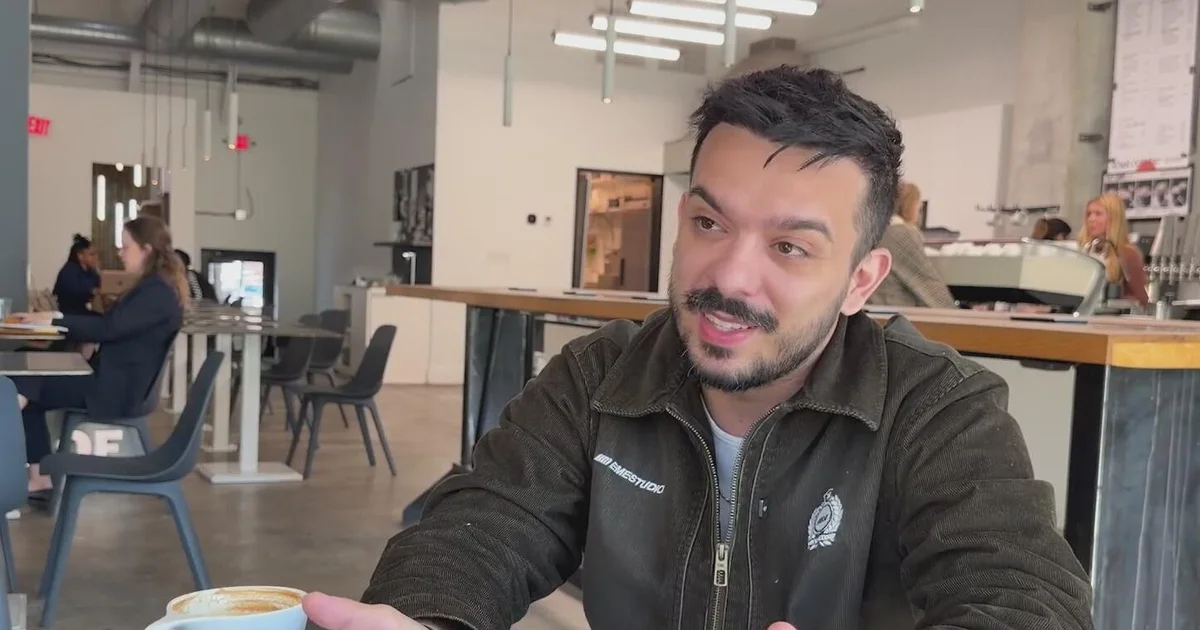Copyright Atlanta Black Star

Without their badges, the Texas deputies who seized more than $40,000 in cash from a Black man named Ameal Woods during a traffic stop in 2019 would have been found guilty of highway robbery. But with the power of the state behind them, the Harris County sheriff’s deputies were allowed to seize the money without probable cause through civil forfeiture by falsely accusing Woods of obtaining the money through drug trafficking — a practice that over the years has generated millions of dollars for the Harris County Sheriff’s Office and the Harris County District Attorney’s Office, which enable the racket in order to profit. Harris County prosecutors even managed to convince a jury in a 2023 civil forfeiture trial the deputies were allowed to seize the money despite not having a shred of evidence to charge Woods with any criminal activity. The money seized through civil forfeiture is divided between the Harris County Sheriff’s Office and the Harris County District Attorney’s Office, so it’s no wonder prosecutors were so adamant to the jury during the six-day trial that the money was “intended to be used in the commission of the possession of a controlled substance.” “They benefit from forfeiture because they get to keep and pocket locally all the stuff they seize,” said Arif Panju in an exclusive interview with Atlanta Black Star, who is a managing attorney with the Institute for Justice, a nonprofit public interest law firm that represented Woods and his common-law wife, Jordan Davis, who lent Woods $6,500 and is also a plaintiff in the lawsuit. A Michigan County Seized a Man’s Car and $2,280 In Cash, But Didn’t Charge Him with a Crime. After He Fought Back, Prosecutor Tried to Jail Him Twice. Now That Official Must Face Him In Court “The seizing officers and the DAs that go after the money get to split the proceeds in their budgets, and that can go to salaries and bonuses, so that’s a perverse, and we say, unconstitutional financial incentive.” And the process is done through the civil courts rather than the criminal courts, where the burden of proof shifts to the defendant to prove their innocence. Earlier this month, a Texas appeals court overturned the jury verdict from the civil forfeiture trial, ruling the Harris County Sheriff’s Office must return the money to Woods, who had been planning to use that money to purchase a tractor-trailer to grow the trucking business he owned with his brother. The appeals court is also reviewing a pending class action lawsuit with Woods and Jordan as the main defendants, which is urging judges to issue a permanent injunction to stop law enforcement from seizing money through civil forfeiture. A decision in Woods’ favor would put an end to the practice in Texas that has victimized hundreds, if not thousands, of citizens over the years, allowing both local law enforcement agencies and district attorney offices to enrich themselves through intimidation and lies, which should be viewed as a conflict of interest considering prosecutors are supposed to hold cops accountable for their unlawful and unconstitutional actions. “Ameal and Jordan really are the heroes here,” Panju said. “They got caught up like many people got caught up, but they stood up against tremendous headwinds in a case where their life savings was at stake, where the government was extremely intimidating, where they showed up to Mississippi multiple times, both to lean on family members to testify against them and to take pictures.” Panju believes the judges will issue a ruling on the class-action lawsuit within the next few weeks, if not days. “We expect a decision on that any day now,” Panju said. ‘This Money is Connected to Drugs’ The ordeal began on May 14, 2019, when Woods entered Harris County from Mississippi in a rental car with $42,300 to purchase a tractor-trailer, aiming to expand the small trucking business he ran with his brother from one to two tractor-trailers. He had saved $22,800 of his own money, then borrowed $13,000 from his niece and an additional $6,500 from Davis, his partner and the mother of his children. He has since paid his niece back, but not his partner, which is why she is listed as a plaintiff and the niece is not. The self-described “country boy” who comes from a family of truck drivers preferred to deal with cash because he was distrustful of banks after his late father told him a bank once stole his money and he was unable to do anything about it, a result of the systemic racism that has plagued Mississippi for decades. According to the pending class action suit. Ameal’s father had a keen distrust in banks. As a black man who lived his entire life in Western Mississippi, there were times when he was not treated right. He told Ameal about how he went to take money out of a bank in Natchez one time and the employees pretended he had no account. As Ameal understood it, the bank had stolen his father’s money, he never got it back, and there was nothing he could do about it. Sometimes he hides money around the house. Other times he hides cash in nondescript packaging-for example, a light bulb box-or wraps it in paper and tape. Still other times, he uses a vacuum sealer-like one uses to store meat-to compress cash down, make it small, and seal it against damage before burying it in the ground. Before he left for Houston, he used a vacuum sealer to compress the cash, then placed it in the trunk of the rental car. He also brought a legally owned gun with him to protect himself, placing it between the driver’s seat and the center console. He was pulled over on Interstate 10 by a pair of Harris County sheriff’s deputies in a patrol car who accused him of driving too close to the tractor-trailer in front of him. As a professional truck driver with a commercial driver’s license, Woods knew better than to drive too close to a tractor-trailer, but he did not argue because he wanted to be on his way. Harris County Sgt. Wade asked if he had any guns in the car, and Woods told him about the legally owned firearm he had in the car. He also answered truthfully when the sergeant asked if he had any cash in his car, telling Wade of his plans to buy a tractor-trailer for his growing business. Wade then asked if he could search the car, and Woods gave him consent, which was when the sergeant found the cash in the trunk. “I think this money is connected to drugs,” Wade said as he informed Woods he was going to seize the money, according to the claim, despite no evidence of it being connected to drugs or any other crime. Wade then handed Woods a “citizen’s info card” with a case number and told him he was free to go, allowing Woods to leave with his loaded gun by his side without even a warning over the alleged infraction for driving too close to a tractor-trailer. It would be two years before Woods would hear from Harris County about his money. “Ameal and Jordan are not the only victims of policing for profit,” said Wesley Hottot, one of the attorneys representing the couple in a YouTube video published by the Institute for Justice, and posted at the end of the article, which also includes Woods discussing the traffic stop. “Between 2018 and 2020, law enforcement across Texas added $135 million to their budget through seizures and forfeitures. More than $37 million of that went to salaries in overtime paid directly to the people who decide whether to seize and forfeit property,” explained Hottot. “Houston (Harris County seat) takes in more than 10 percent of the statewide total and pays more than $2.3 million every year to police just for salaries and overtime. The more property they seize, the more money they make.” “This financial motive to seize property has led Houston to adopt shoddy practices.” Did Deputies Pocket $650? Nearly a month after the deputies seized his money, the Harris County District Attorney’s Office filed a “notice of seizure” with the court for $41,680 along with an affidavit signed by a Harris County sheriff’s deputy named Gregory Nason, who was not even at the traffic stop when the money was seized from Woods. Woods, however, insists he had $42,330 in the trunk, so $650 has gone missing. The deputies who counted the money before submitting it as evidence, Robert Wade and Elias Sandoval, did not have their body cameras turned on as required by departmental policy, so there’s no way of confirming how much they seized. Deputies also claimed a police dog alerted them to the scent of drugs on the money after Woods had driven off, but even if that were true, that is hardly probable cause, considering up to 75 percent of the money in circulation is contaminated with drugs. Nevertheless, that is an often-used excuse in these cases, which tend to read like copy and paste versions of each other, said Panju, who reviewed it all. The affidavit was filled with the usual exaggerated and dramatic details commonly used to embellish police reports to justify unlawful arrests or seizures, accusing Woods of being “uncomfortable with labored breathing” and having “facial tremors” and “licking his lips” – doing everything to paint Woods as a nervous criminal with something to hide – without listing actual evidence of a crime. However, two years passed without Woods hearing anything from Harris County regarding the seized money, despite the district attorney’s office claiming it had attempted to contact him several times. It was not until June 2021 that Woods and Davis received a copy of the affidavit signed by Deputy Nason, who was not even at the scene, accusing him of acting suspiciously, but without body camera footage to prove it. It turns out Nason has signed off on dozens of civil forfeiture seizures in cases where he was not even at the traffic stop, using a boilerplate method where he copies and pastes the same language in affidavits to justify seizing money from citizens who have committed no crimes. “The affidavit had obvious copy and paste parts in it because the font doesn’t match and it was written and signed by an officer who wasn’t present at the scene, so it’s hearsay, it’s unconstitutional,” Panju said. “We found about 80-some affidavits with the exact same language. Sometimes they won’t even check to see if the case was about a car or cash because when you read it, it talks about a car when it’s a cash case and vice versa.” ‘Financial Incentive … to Seize Money’ The class-action lawsuit was filed in district court in 2021, but the Harris County district attorney and sheriff’s office argued they were immune from lawsuits. But the district court judge disagreed, so the county filed an appeal, which is why the class action lawsuit is being reviewed by the same appellate court that reversed the jury’s decision in the civil forfeiture trial. The class-action lawsuit describes a system of preying on innocent citizens to seize their money in order to expand their budgets with little regard to criminal activity or constitutional rights. From 2018 to 2020, Harris County prosecutors added $7.7 million to their budgets in this manner. Over the same period, law enforcement agencies in Harris County added $15.9 million to their budgets. More than $7.5 million of that money was used to pay salaries and overtime to police officers-the same officers who make decisions about whether to seize property. This law creates a financial incentive for law enforcement to seize property without probable cause and for prosecutors to seek forfeiture without an evidentiary basis for doing so. Despite the millions they have seized over the years and the turmoil they have caused Woods and Davis by seizing their life savings, state law does not allow monetary damages to be awarded in cases where the Texas Constitution has been violated, Panju said. The goal of the class-action lawsuit is for the court to issue a permanent injunction, effectively putting an end to the unconstitutional seizures. Panju is confident the judges will rule in his favor, which would be in favor of the people. Although the appellate ruling from earlier this month ordered the county to return the money to Woods and Davis, the couple has still not received a penny because the Harris County District Attorney’s Office has requested an additional 30 days to consider appealing the decision. That would take the case to the Texas Supreme Court, where they would likely lose, considering the recent appellate ruling, if they even decide to review the case, Panju said. And if Harris County chooses not to appeal, then they have to take the case back to the district court, where the judge would be required to follow the ruling by the appellate court, which would be when the money is finally returned to Woods and Davis, minus the $650 that may have been pocketed by the deputies. “We’re fully confident that the Court of Appeals will correctly hold that the DA and the sheriff have to comply with the Constitution just like everybody else,” Panju said. “They’re not exempt from it.” “And now they’re going to have to answer for why they’ve been taking people’s cash and cars using civil courts when there’s no arrest and conviction, and splitting the proceeds amongst themselves. Rinse and repeat, often using affidavits that are signed by someone that wasn’t even there.” “Just a cog in the wheel in the forfeiture machine. And we’re looking forward to litigating that and putting an end to the many constitutional violations that for years people had to suffer under.”



